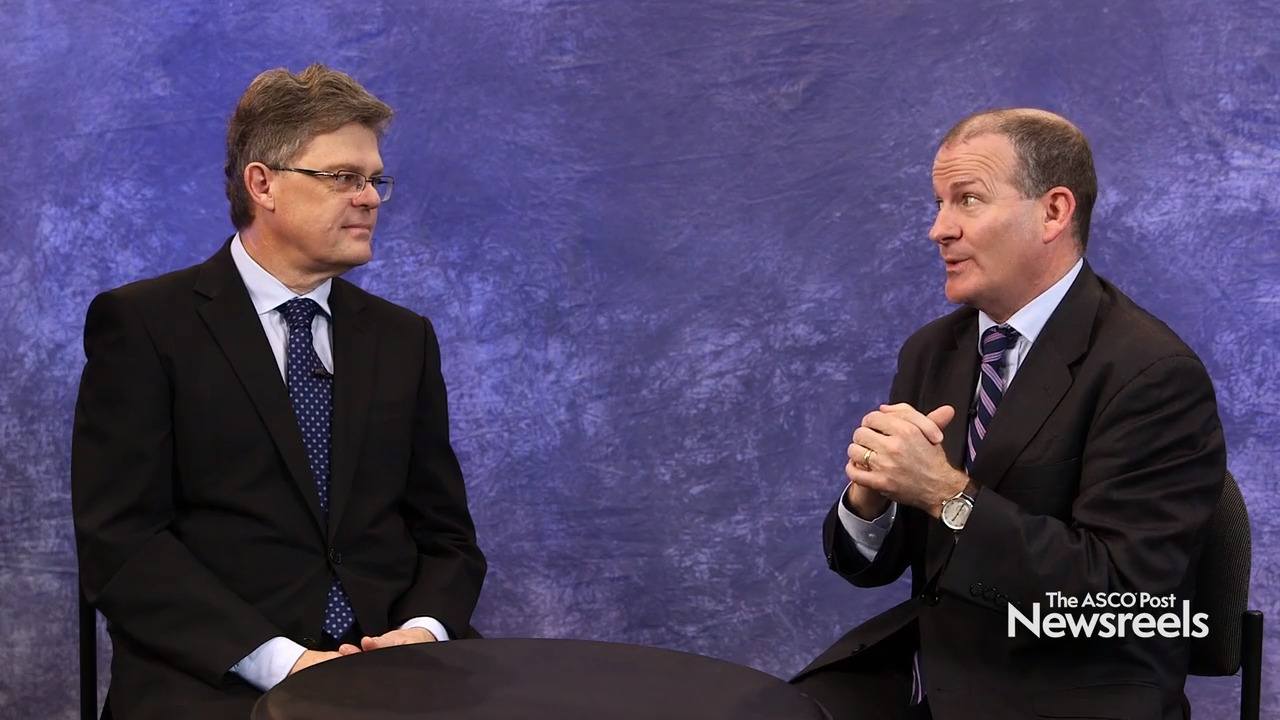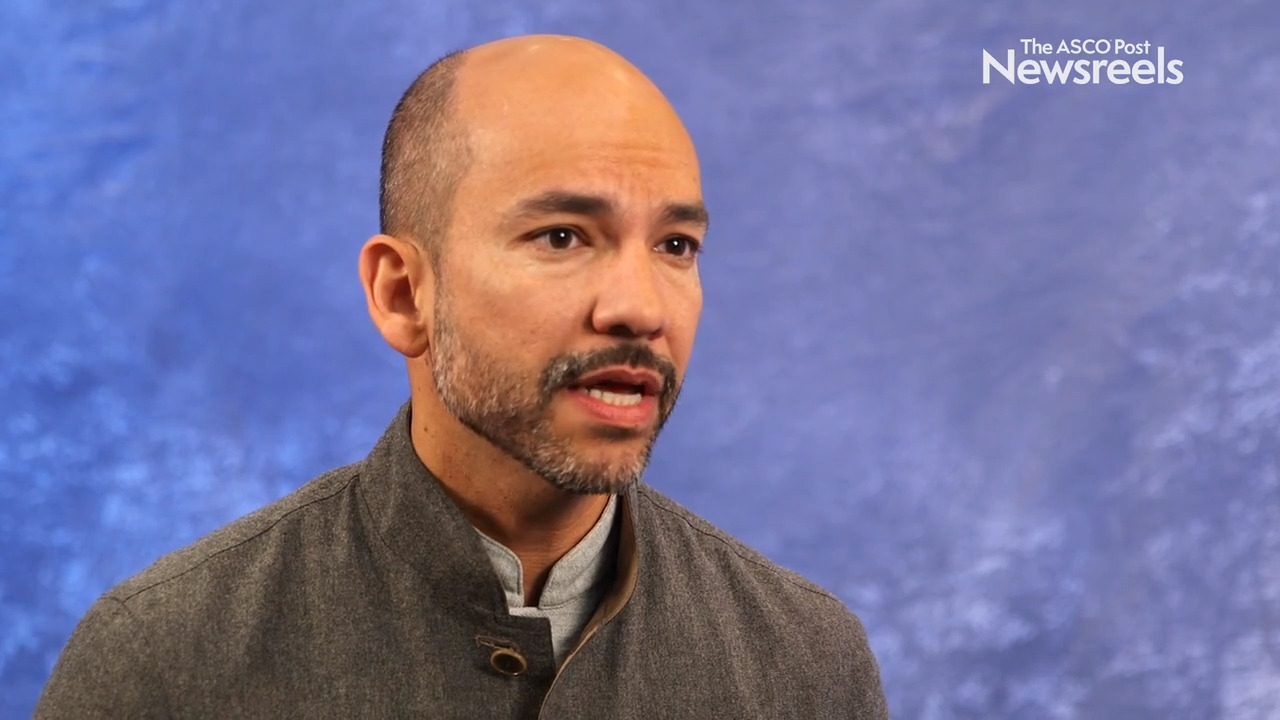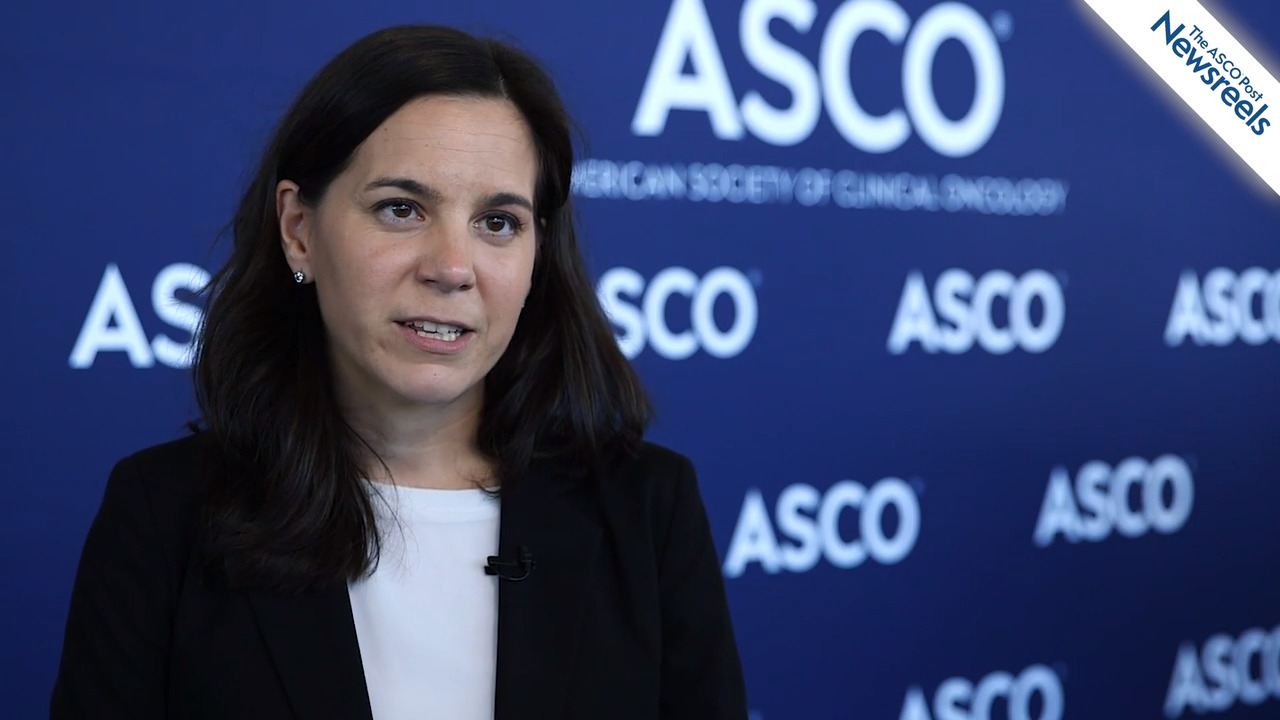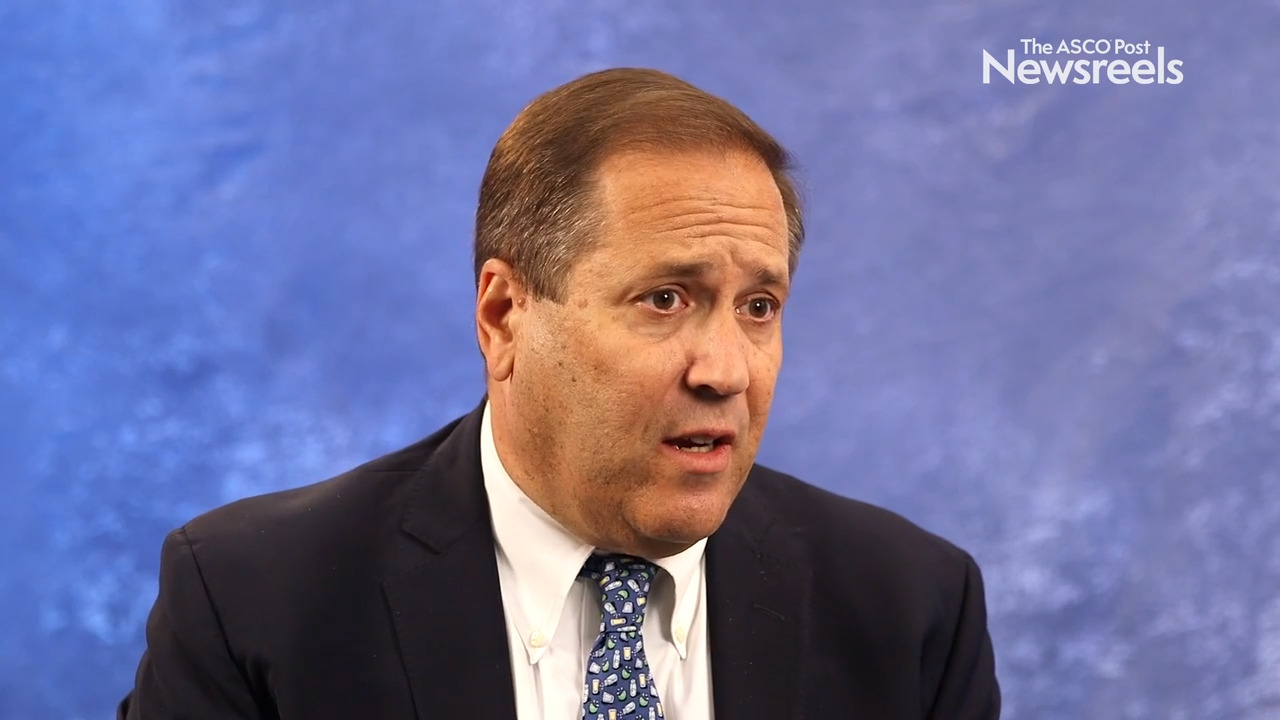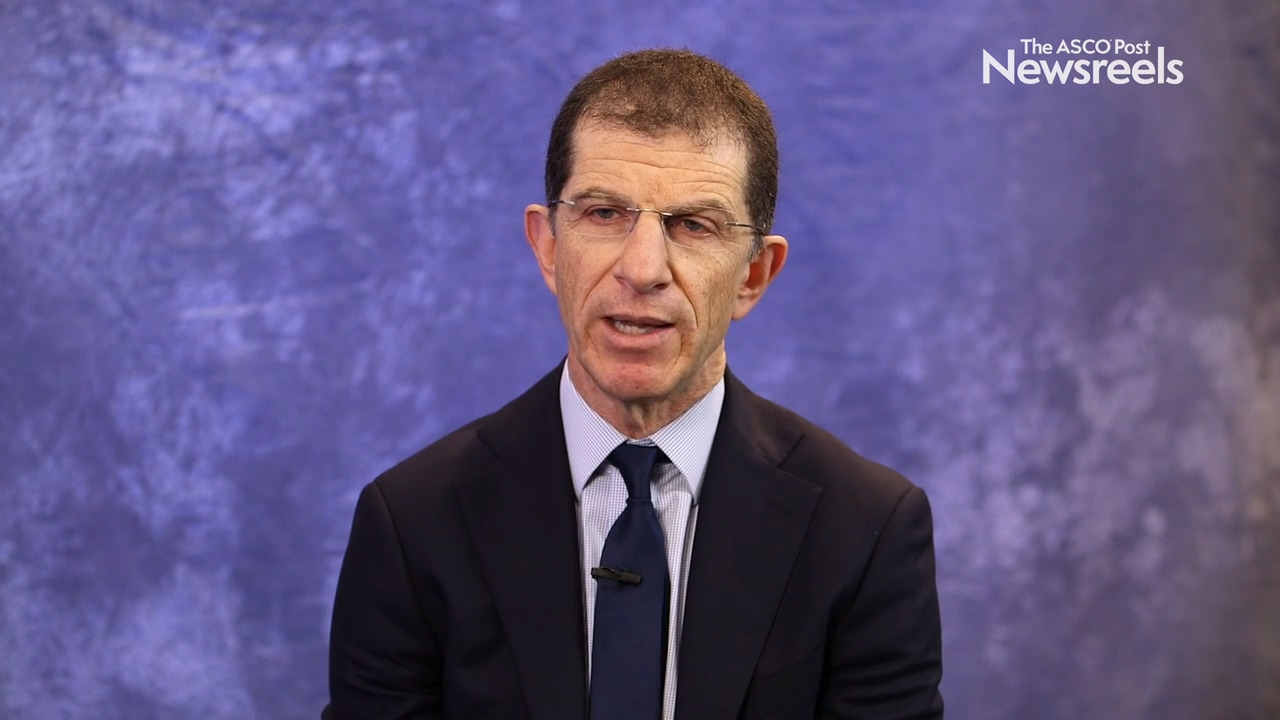Jonathan E. Rosenberg, MD, on Urothelial Carcinoma: Adding Bevacizumab to Gemcitabine and Cisplatin
2019 ASCO Annual Meeting
Jonathan E. Rosenberg, MD, of Memorial Sloan Kettering Cancer Center, discusses results from the phase III Alliance trial, which showed that adding bevacizumab to gemcitabine and cisplatin did not improve overall survival in patients with metastatic urothelial carcinoma, but did improve progression-free survival (Abstract 4503).
Ian D. Davis, MBBS, PhD, of Monash University and Eastern Health, and Christopher Sweeney, MBBS, of Dana-Farber Cancer Institute, discuss phase III findings from their international trial on adding enzalutamide as a new treatment option with testosterone suppression for metastatic hormone-sensitive prostate cancer (Abstract LBA2).
Gilberto Lopes, MD, MBA, of the Sylvester Comprehensive Cancer Center at the University of Miami, offers commentary on phase III findings from the RELAY study, which showed that erlotinib plus ramucirumab led to superior progression-free survival in previously untreated patients with EGFR mutant–positive NSCLC (Abstract 9000).
Angela Lamarca, MD, PhD, of The Christie NHS Foundation Trust and the University of Manchester, discusses phase III findings from a multicenter study of active symptom control alone or active symptom control with oxaliplatin and fluorouracil for patients with locally advanced or metastatic biliary tract cancers previously treated with cisplatin and gemcitabine (Abstract 4003).
Adam Brufsky, MD, PhD, of Magee-Womens Hospital and the Hillman Cancer Center at the University of Pittsburgh Medical Center, discusses phase III study findings on neratinib plus capecitabine vs lapatinib plus capecitabine in patients previously treated for HER2-positive metastatic breast cancer (Abstract 1002).
Danny Rischin, MD, of Peter MacCallum Cancer Centre, discusses phase III results that support pembrolizumab with and without platinum-based chemotherapy plus fluorouracil as new first-line standards of care for recurrent or metastatic head and neck squamous cell carcinoma (Abstract 6000).
